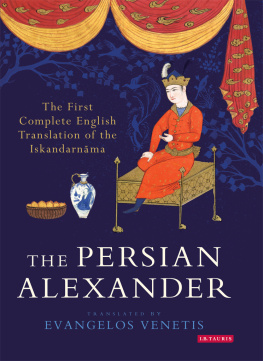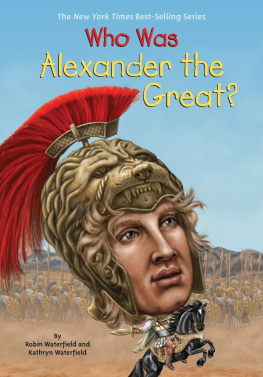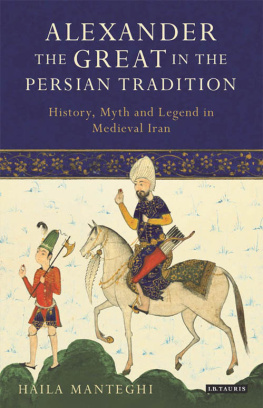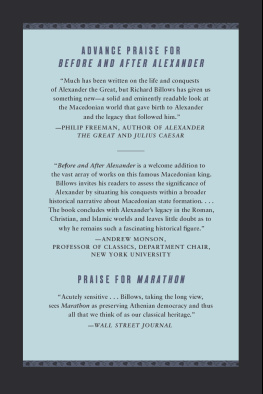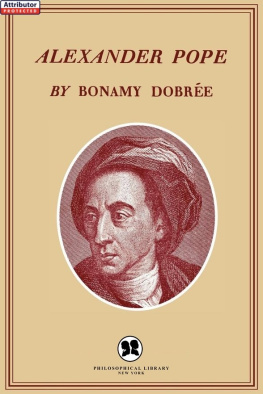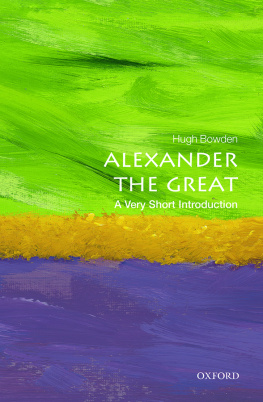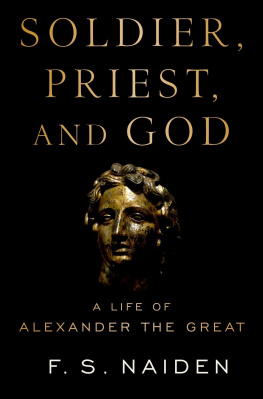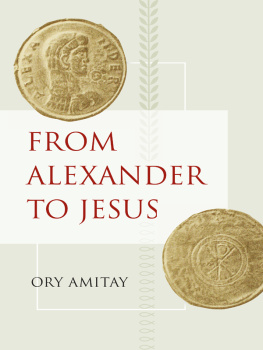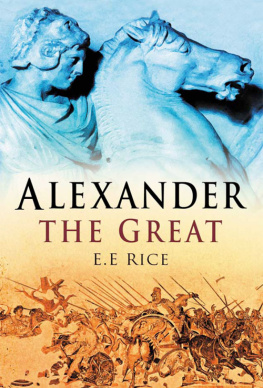EVANGELOS VENETIS is Director of the Society for Hellenic-Iranian Studies in Athens and the coordinator of the Middle East Research Project of the Hellenic Foundation for European and Foreign Policy. He wrote his doctoral thesis on the Iskandarnma at the University of Edinburgh and conducted post-doctoral research in classical Persian literature at the University of Leiden.
This is a book which its author has lived and breathed for more than a decade. He analysed the text in depth in his doctoral thesis and now he has translated it in its entirety, contextualising it with an impressive critical apparatus. This is one of a tiny handful of substantial medieval Persian prose romances to be rendered into a European language, and anyone interested in Persian or indeed comparative literature will also profit from this texts distinctive approach to storytelling. Above all, it is refreshing to encounter the iconic figure of Alexander the Great, who over the course of the centuries has undergone multiple transformations at the hands of Ethiopian, Arab and Turkish authors, in Persian guise. This Alexander is a globe-trotter, visiting Kashmir, Sri Lanka, Yemen, China, Russia and Andalusia, plus the Land of Darkness and the Queen of the Fairies. En route he fights demons, cannibals and hairy-footed men. There is something for everyone here.
Carole Hillenbrand, Professor, Universities of St Andrews and Edinburgh
The legendary life of the conqueror Alexander the Great is a central feature of Persian literature and tradition. Several long and distinguished epics recount his adventure and demonstrate his centrality to the Persian conception of the ideal ruler. The anonymous Iskandarnma is one of the earliest, and includes many tales that are found in no other work, including the eleventh-century Shhnma which closely precedes it. The differences from contemporary Greek and European versions are remarkable, and yet in all of them Alexander remains a model of religious devotion as well as a tragic hero who leaves the world empty-handed. Evangelos Venetis elegant translation is the first to make the entire work available in English, and gives us once again an Alexander whose significance straddles East and West.
Richard Stoneman, Honorary Visiting Professor, University of Exeter; author of Alexander the Great: A Life in Legend and translator of The Book of Alexander the Great (the Greek Phyllada tou Megalexandrou).

Published in 2018 by
I.B.Tauris & Co. Ltd
London New York
www.ibtauris.com
Copyright 2018 Evangelos Venetis
The right of Evangelos Venetis to be identified as the author of this work has been asserted by the author in accordance with the Copyright, Designs and Patents Act 1988.
All rights reserved. Except for brief quotations in a review, this book, or any part thereof, may not be reproduced, stored in or introduced into a retrieval system, or transmitted, in any form or by any means, electronic, mechanical, photocopying, recording or otherwise, without the prior written permission of the publisher.
Every attempt has been made to gain permission for the use of the images in this book. Any omissions will be rectified in future editions.
References to websites were correct at the time of writing.

The publication of this book was made possible by the generous support of the Soudavar Memorial Foundation, which the Publishers and Editors gratefully acknowledge.
ISBN: 978 1 78453 879 8
eISBN: 978 1 83860 958 0
ePDF: 978 1 83860 959 7
A full CIP record for this book is available from the British Library
A full CIP record is available from the Library of Congress
Library of Congress Catalog Card Number: available
To Fatema Soudavar Farmanfarmaian,
the ardent supporter of Iranian civilisation
and studies worldwide
Contents
.
The transliteration system employed is that of the Encyclopaedia of Islam (2nd edition) with the following exceptions: j, q, th, dh, gh, kh, sh instead of dj, k, th , dh , gh , kh and sh , respectively. The diphthongs are cited as aw and ay. The short vowels are a, u, i and the long vowels are , and . With regard to the use of articles in Arabic, the cases of wa al, dhl and fl are cited as wal, dhul and fil, respectively. Persian additions to the Arabic alphabet are also transliterated as zh, p and ch. Persian and Arabic names of authors are transliterated when their works are written in Persian or Arabic, for example, M.J. Mahjb. Proper names of cities and regions of the past are also transliterated, for example, Nshpr. Contemporary geographical names and terms are not transliterated, for example, Shiraz.
This book is the culmination of a four-year research effort, multifaceted in scope and depth, which took place in Iran (Tehran), Greece (Athens) and the Netherlands (Leiden). The author would like to express his gratitude to the certain individuals and organisations that have contributed to making this book possible; Dr Christine van Ruymbeke (University of Cambridge) for her useful pieces of advice, especially in the initial and final stages of research; as well as Dr Gabrielle Van den Berg (Leiden University) for her insightful comments.
Many thanks are due to the late Prof. raj Afshr for his guidance throughout this translation, and to Dr Mehran Afshari (Centre for the Great Encyclopaedia of Islam, Tehran) for his constant support and knowledge in the field.
I am indebted to the Soudavar Memorial Foundation (Geneva), whose sponsorship has enabled the translation and publication. Furthermore, it should be noted that this work has been keenly supported by Mrs Fatema Soudavar Farmanfarmaian, whose wide knowledge, invaluable help and spirit of cooperation have been always a source of inspiration for promoting research both in Iranian Studies and Hellenic-Iranian studies in particular. With her astute literary instinct, her intelligence and her abiding love for her country, she has singularly contributed to the creation of this endeavour. I dedicate this book to her.
Lastly, I would like to thank my friends and family for their constant support during this translation: in particular Elli Antoniades and my wife, Dr Sarah Alinia, for her patience and stamina. She cannot be credited enough.
Alexanders life (356323 BC) captured the imaginations of his contemporaries and future generations. The Alexander legend spread around the globe through the oral and literary media in Late Antiquity and the early Islamic period. The oral tradition and the popular literary tradition became the main sources for the spread of Alexanders legend to the average middle and lower classes of society. Through these sources, the future generations would immortalise his name and life.
Alexanders legendary image is attested in various cultures and literatures, both in the East and West. His life story has been adapted to the needs of different regions and civilisations. For instance, the Iranians saw the Achaemenid Empire conquered by Alexander. Whereas, due to inadequate literary evidence, Alexanders image in pre-Islamic Iran remains obscure; Alexander became more popular in the Islamic than in the Mazdaean tradition.

